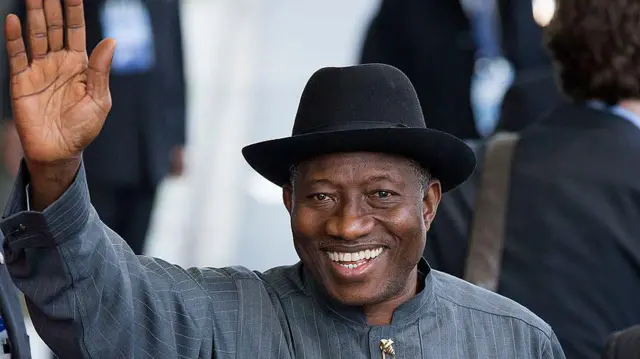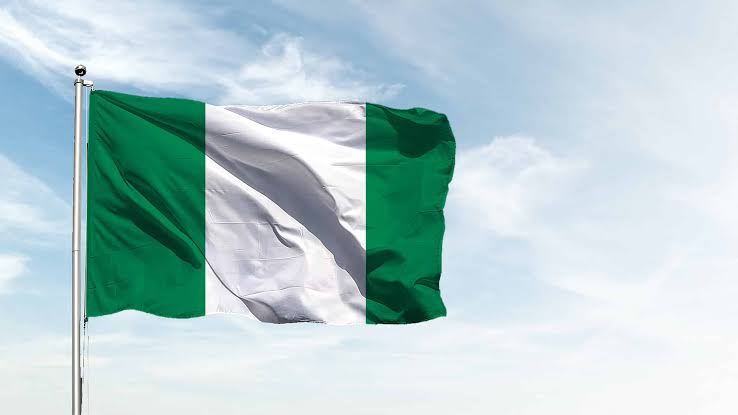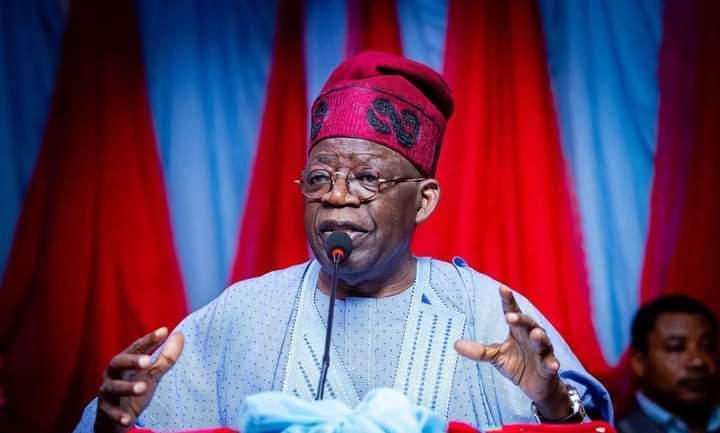by Akin Osuntokun
Out of the blues I was summoned about ten days ago to write on retired Brigadier Benjamin Adekunle aka Black Scorpion. It was a rather strange request made less strange by the fact that Kayode Ajulo himself has a bit of the charming eccentricity about him. In a fit of pique on the seeming helplessness of the Nigeria Army to grapple with the Boko Haram insurgency, he wanted me to invoke the memories of Adekunle’s Civil War exploits as exemplification of the glory days of the Nigeria Army.
Kayode is one of those guys I would bend over backwards to indulge and he knows it; and so I allowed my mind to range freely and widely seeking inspiration to ground Adekunle as potential subject matter for this column. Coincidentally, the Civil War hero had been on my mind in the past three years on a related but quite distinct exploration. It was a nascent idea stimulated by an autobiographical recapture of a particularly enchanting moment in his civil war career. I was thinking in terms of getting a movie producer interested in the idea as rich enough anchor for a movie narrative.
In Adekunle’s semi autobiography comprising a cache of his civil war memos, letters and other jottings supplemented with biographical account by his son, I chanced upon a portion that read like a James Hadley Chase thriller. Adekunle’s young wife had gone to visit her parents in Peterside, a neighbouring island to Port Harcourt and got trapped there by the outbreak of the civil war. After the marathon blitz of the Third Marine Commando from Calabar to Port Harcourt, Adekunle next set his sights on the rescue of his stranded wife.
In a naval gunship captained by Akin Aduwo, he soon set sail for Peterside. And in a well-rehearsed seaborne campaign strategy, Aduwo was to let loose salvoes of the loudest booming cannon fire over the outskirts of the town — the objective was to shock and awe the populace out of the streets and get everyone scampering to take cover in their homes. To accomplish his mission with dispatch and minimum fuss (and no casualty) Adekunle wanted the outdoors emptied of human presence.
The ground thus prepared, he proceeded to his wife’s compound and knocked on the door…as his repeated knocks went unacknowledged he thought he had outperformed himself and got the scared inhabitants farther than their homes into the bush. He was about turning away but then decided to reach out with an unmistakable personal signal. ‘Comfort…Akiye, it is me Papa Sola’ and then a soft wailing cry wafted from inside the house as his wife came to the door and tumbled into his arms. He said he regarded the rescue as ‘his most prized capture of the entire war’. How romantic can any war scene get? Who would have thought the fire eating Black Scorpion capable of such Romeo and Juliet melodrama?
On my way to Abeokuta last Saturday, I got another call from – who else? Kayode again, reminding me of the discussion we had and how the assignment he gave me had acquired a radical transformation. The man died this morning, he reported. Unwittingly he had been playing the handmaiden to forces greater than you and I; and had been prompted to summon me to compose Adekunle’s dirge — 10 days before such assignment would make sense to us mere mortals. This was nicely turning into a drama worthy of Adekunle, the showman.
I cannot recall precisely when their paths first crossed but it is a documented fact that former President Olusegun Obasanjo shared a room with the late Adekunle at Ghana Military School, Teshie in 1958. Their relationship was frosty from the onset and resulted in the demarcation of the room to wall off intimacy with one another.
A far flung admirer suddenly got seized of a brain wave interceding with me to invoke a tenuous contemporary relevance for a nearly forgotten civil war legend. And now this! If only he knew, Kayode would have had no need to cajole me or anybody else to write on Adekunle — his translation into immortality is guaranteed choice grist for the commentators’ mill from whence he died.
And the drama continues. In what appears to be a recurring twine of fate- Adekunle’s death was preceded by the news of another Obasanjo (Deboye) getting wounded on the Boko Haram war front within the same week. I cannot recall precisely when their paths first crossed but it is a documented fact that former President Olusegun Obasanjo shared a room with the late Adekunle at Ghana Military School, Teshie in 1958. Their relationship was frosty from the onset and resulted in the demarcation of the room to wall off intimacy with one another.
Eleven years down the line, the twined fate was re-lived when Obasanjo replaced the same Adekunle as General Officer Commanding the Third Marine Commando during the civil war and in rather unusual circumstances. The blistering success accomplished by the commandos — practically sealing the fate of Biafra within a year of joining hostilities (with the blitz from Calabar to Port Harcourt) had flagged to an anti-climax at the hands of the same architect of the most unique success story of the war effort.
There is no adjective that characterises Adekunle better than hubris (excessive pride-in defiance of the gods leading to nemesis). In contrasting himself with the former, Obasanjo would often harp on this trait especially the trademark exhibitionism as his point of departure with Adekunle. It will be difficult to talk about Adekunle without talking about the civil war just as it is implausible to talk about his role in the civil war without reference to his relationship with Obasanjo.
Adekunle did not author any book on the civil war but Obasanjo wrote ‘My Command’. The story of the civil war is nonetheless impoverished by the omission of the two opposing Commander-in-Chiefs, General Yakubu and Chief Odumegwu Ojukwu, (leaders of Nigeria and Biafra respectively), to personally account for the war. The former may yet redress this lapse but no such redemption is open to his late sparring partner.
The vacuum created by this historical omission has mostly been filled by low grade whimsical and segmented recollections by lesser known actors. Next in importance to the two summit leaders is undoubtedly Obasanjo whose 3rd Marine Commando dealt the fatal blow to Biafra and appropriately took the surrender instrument.
In no man’s life is the saying that – luck equals preparedness plus opportunity -more typical than that of Obasanjo. It is not that others do not make efforts and exert themselves; the difference is that his efforts tend to get repeatedly crowned with success. I do not know of any station he has attained in life that anyone can objectively contend he does not deserve. The problem is that Obasanjo is not a self-effacing achiever and this tends to provoke wide-ranging reluctance to give him credit for his achievements.
Of greater concern is the tendency of the reluctance to get escalated to outright demonization. The extension of this kind of hostility to his role in the Civil War has tended to diminish the hugely significant contributions of the 3rd Marine Commando to the war effort. It was as if the glory days of the commandos ended with the exit of Adekunle and that the surrender of Biafra to Obasanjo was more or less a formality devoid of the component of military defeat instrumentality. I propose that the true worth of the 3rd Marine Commando has been under-reported on account of incipient ill disposition towards the personality of its latter day commander.
Any meaningful holistic appraisal of the formation and deployment of the 3rd division of the Nigeria Army has to delve substantially and in depth into the role of the Yoruba in the prosecution of the war. The strategic co-opting of the Yoruba-through the tactical political manoeuvre of befriending and enlisting Chief Obafemi Awolowo, was reinforced with the formation of a predominantly Yoruba Army division. This is the sole explanation for making the succession of the commanders exclusive to the Yoruba.
As recalled by General Alabi Isama in his war memoirs, the division was so overwhelmingly Yoruba that Adekunle loudly gave voice to the complaint that ‘there are too many Yoruba under my command’. The otherwise commendable memoirs is in large measure typical of the genre of those Civil War stories that amount to little more than settling scores with Obasanjo. The author indeed affirmed the desire to confront the former president (and set the record straight) as his principal motivation.
If the book can be divested of its’ deliberate demonization and trivialisation of Obasanjo, it would rank among the more informative publications on the Civil War to date. Directly resulting from the peculiar prescient role of his mother, the book boasts the best pictorial recollection of the war. Isama’s mother specifically directed her son to engage a personal photographer to document his war time activities. She is probably the only mother I have heard of who goaded her son not only to join the Army but lustily accompanied him to the war front with a passion for posing for pictures at the hottest theatres of battle!
I now crave the indulgence of readers to admit that I have a parochial interest in Isama’s book. Before reading the book, I never realised the full measure of the battle field contribution of the Yoruba to the success of the war. I did not even know that there was the need to create a whole division to specifically incorporate the Yoruba into the war effort. If you have noticed a personal penchant to cast a heroic glow on the 3rd Marine Commando, it is deliberate and intended as a tribute to Adekunle and a rediscovered uniqueness of that Army division.
I read of the valiant efforts of non-Yoruba officers like Sunny Tuoyo, Shande, Hamman and most fascinating of all Adaka Boro but the prize goes to Benjamin Adekunle, Olusegun Obasanjo, Alabi Isama, dare-devil fighter pilot Gbadamosi King, Ayo Ariyo, and the soul wrenching instance of the young lad Major Tomoye who died in a car accident on the day, January 12th, Alani Akinrinade militarily secured the end of the war.
One dark episode of Nigeria’s history I hate to remember was the tearful cowering of Gen. Oladipo Diya and other high ranking Yoruba Army officers in supplication to Major Hamza Al-Mustapha and Gen. Sani Abacha upon their arraignment for the 1997 phantom coup. It reflected badly on the Yoruba people and I took it personally. Revelations to the contrary in Isama’s book has alleviated my distress.
—————-
Op-ed pieces and contributions are the opinions of the writers only and do not represent the opinions of Y!/YNaija.












